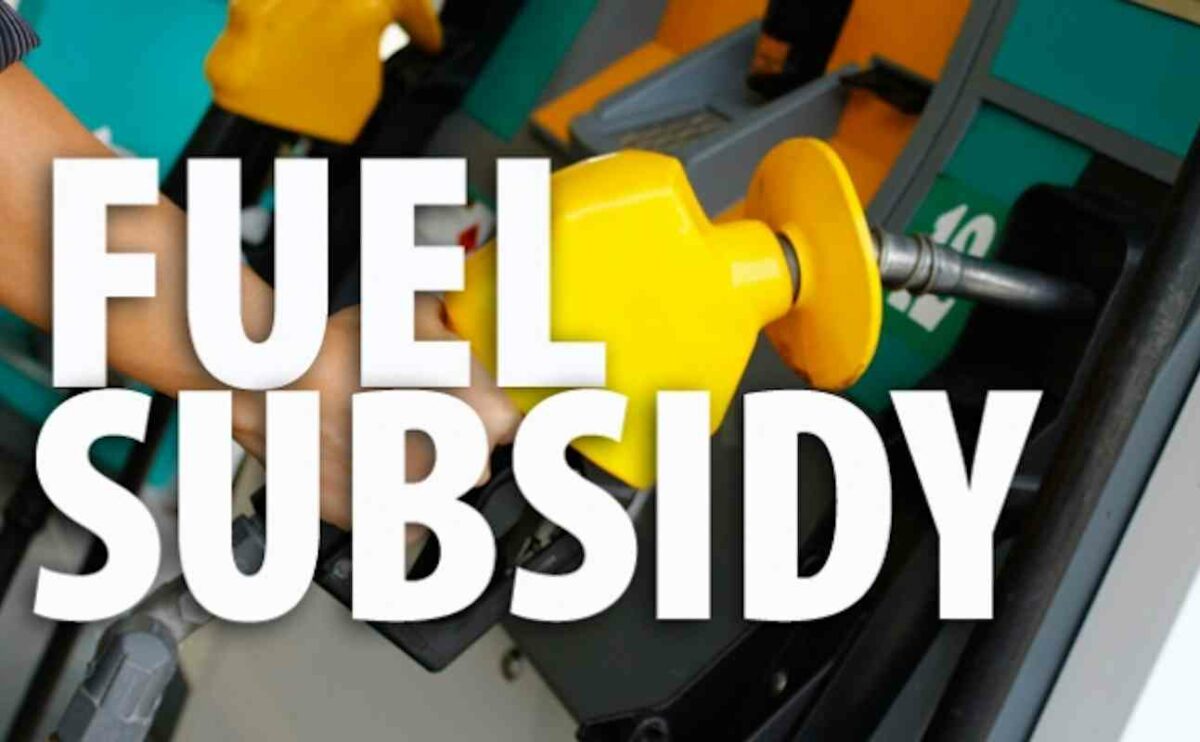After paying lip service to the question of petrol subsidy removal, the outgoing administration, now in its twilight, wants to rush through it, apparently, so it can flaunt the measure as part of its achievements. That will be pure deception.
Eight years in office should have been enough for the federal government to articulate a sound policy for an orderly, less disruptive removal of this obnoxious policy that clearly benefitted only those who did not deserve it in the first place.
But, hanging unto its unrealistic populist stance designed purely to impress the electorate, the administration of President Muhammadu Buhari chose to stick to a policy that caused the public purse to bleed uncontrollably. As the subsidy persisted, the nation sank deeper into debt because the entire subsidy budget has been borrowed.
The petrol subsidy has a lot of things wrong with it. First, it is prone to corruption, and its continued stay is because there are people in high places who benefit from it. This is so because it is shrouded in mystery.
In a weird twist, the amount spent (or just budgeted) for subsidy each year has risen in line with increases in the global price of oil. For a nation that is a leader in oil production, this is an irony and twist of fate. It denies the nation the opportunity to derive any benefits from oil price increases, as the country has on each occasion had to pay higher prices for the local consumption of a product it supplies to the international market.
The major reason Nigeria imports refined petrol and turns around to subside it at higher costs is the failure of the government to repair the country’s refineries. Those within the government who are now pushing for ending the subsidy programme, where have they been in the last eight years while the nation’s refineries lay comatose? What has changed significantly in the state of these plants on the basis of which they are now frantically calling for an end to subsidy? They need to provide answers to these and other pertinent questions.
In 2022, the government budgeted N4trn for petrol subsidy, an amount that was as high as 74 per cent of N5.4trn capital expenditure budget for that year. As the government planned for its exit this year, and still willing to carry the subsidy, it budgeted as much as N3.36trn for the first six months of this year. This represents a 68 per cent increase over the amount spent in the corresponding period in 2022.
Meanwhile, all this has been happening as the country was suffering from declining revenue, with revenue falling far short of the government’s expenditure. This is the reason behind Nigeria’s debt trap, as the nation has been borrowing to fund consumption. In all, by the end of last year, the federal government had accumulated as much as N22.77trn in debt from borrowings through the Ways and Means of the Central Bank. While all this was going on, the government could not summon enough courage to end the subsidy policy. This is why it is quite difficult for most Nigerians to fathom any reason for this government to have chosen for eight long years to retain the subsidy.
Petrol subsidy has been the number one cause of the government’s fiscal woes because all the amount spent on it have been borrowed. Invariably the subsidy has contributed significantly to the debt quagmire in which Nigeria finds itself today.
So, as the government prepares for a handover to the incoming administration, it should focus on the issues that make for a smooth transition, and leave the fundamental question of subsidy removal to those who will take over. This government has played its role based on its model or template.
Nigerians are looking up to the next administration to unfold its economic blueprint for the nation. Already, all indicators point to the inevitability of the removal of the subsidy, but the next helmsmen must be allowed a free hand to decide how to go about that.
Rushing into removing the subsidy now will only further destabilise the macroeconomic system that is currently in turmoil following the CBN’s naira redesign policy. In any case, the subsidy has already been provided for in the budget till June of this year.
Besides, as the incoming administration prepares to take over, it must also learn from the petrol subsidy debacle of its predecessor. One such lesson is the need to appoint a substantive petroleum minister, who should be a professional in charge of the sector. He should drive the activities of the industry and should be held accountable. This will be a departure from the current arrangement where the president is also the Minister of Petroleum. Most of the failures of the industry are traceable to this arrangement because, whether the president believes it or not, he has not been fully in charge of this sector. He has relied mostly on reports from the various interest groups that surround him.




